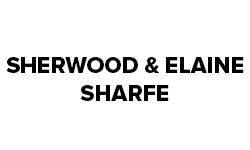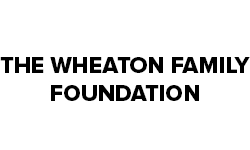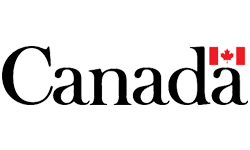Cultural Responsiveness:
Honouring Multiple Perspectives
Personal Considerations
These resources ask students to think deeply about citizenship realities. Conversations that surface during this thinking need to be respectful of the many worldviews and perspectives within classrooms. As a result, teachers are asked to facilitate student exploration of citizenship in a culturally responsive manner. Teachers have experience with cultural awareness as an important first step in creating safe classrooms but, if these citizenship classroom discussions are to be truly respectful, meaningful, and challenge current thinking, teachers must become culturally responsive in their instructional practices.
Culturally responsive pedagogy is often divided into three functional dimensions: the institutional, focusing on the cultural factors that impact the organizational structures of schools; the personal, focusing on awareness of personal biases of the instructor; and the instructional, which refers to the instructional practices used and challenges associated with implementing cultural responsiveness in the classroom. The latter two dimensions of cultural responsiveness are the areas over which teachers have the most direct control.
Teachers of Euro-Canadian background face a particular obstacle to successful integration of culturally responsive instruction at the personal level that must be acknowledged before they can move successfully to exploration of the instructional components of the pedagogy. The personal level of culturally responsive teaching requires awareness of and in some cases, setting aside of individual cultural biases in order to learn about the backgrounds of the students that they will be teaching.
Saskatchewan classrooms are a microcosm of citizenship realities that reflect the changing demographics of our province and provide unique opportunities to explore our relationships with one another in a safe, caring, and accepting environment. Diversity is central to increasing the richness of classroom discussion sparked by the inquiries. Alternate viewpoints play a role not only in strengthening communication skills, but also in expanding the experiences and citizenship competencies of individuals and groups. Willie Ermine’s work on ethical space tells us that changing thinking requires that individuals move into shared space to explore topics with ambiguity tolerance and open minds. In order to do this successfully, educators must first investigate their own heritage, upbringing, and potential cultural and racial biases. Euro-Canadian culture has generally dominated social and behavioral norms and policies for years and as a result, those who grow up immersed in that perspective can be entirely unaware of the realities of other cultures. Cultural responsiveness requires that comparisons and discussions of differences do not leave students with the idea that one culture is superior to others. It is when teachers can begin to recognize that their own personal experiences are not better than others that true exploration and appreciation of the values and traditions of other cultures are realized. Teachers are then working towards development of a classroom culture where students feel comfortable enough to share their heritage and knowledge and where different experiences and worldviews are accepted without judgment and respected as legitimate.
Resource Considerations
These resources are designed to support Saskatchewan’s constructivist curriculum and assist teachers to form partnerships with students to have courageous conversations about the challenges and opportunities that citizenship engenders, locally and globally. Use of discursive strategies to promote respectful discussion and techniques to develop critical thinking are part of the tools that will lead to culturally responsive, empathetic classrooms. The resulting discussions can bring a philosophy of citizenship to life that gives agency to the importance of engaging students and teachers alike, to respectfully acknowledge, respond to, and affirm diverse cultural ways of knowing. These understandings embody the citizenship competencies that the resources strive to develop in all students.
Culturally responsive use of these resources depends on teachers recognizing the importance that culture plays in all aspects of learning and validating students’ connections of their learning within their culture. Culturally responsive classrooms must be places of trust that allow for thoughtful and respectful conversation. From Kindergarten to Grade twelve, students are developing dispositions that allow differing worldviews to be understood while encouraging cooperative, working relationships to exist. Sometimes discussions may become uncomfortable, but if managed constructively, they can provide rich learning experiences and achieve collaborative outcomes.
Citizenship exists in the real world. These inquiries provide opportunities for students to make connections to their realities, their cultures, and their lived experiences. It is anticipated that teachers will learn as much about their students as students are learning about the identified outcomes. When teachers connect classroom explorations of citizenship issues to real life citizenship examples, they support students in developing the understanding that citizenship responsibilities require constant vigilance and mobilization.
Teachers act as facilitators, guiding students to surface themes, and effectively connect their culturally and community-based knowledge to their developing citizenship competencies. Students are encouraged to add their questions to the inquiries, work collaboratively to discover information, and apply their learning in authentic contexts. They are invited to demonstrate their understanding of citizenship in ways that support their learning strengths while taking risks in areas where they are still developing understanding. By validating the cultural knowledge and experiences that already exist in classrooms and communities, teachers are able to take approaches to teaching citizenship education that are strength-based.
Teachers play a valuable and critical role in bringing these resources to life. It takes courage to allow students to authentically grapple with citizenship challenges within the context of their personal culture and worldview, but it is within those interactions, that citizenship, nationally and globally, will be strengthened.
© 2023 Concentus Citizenship Education Foundation Inc. All Rights Reserved.









